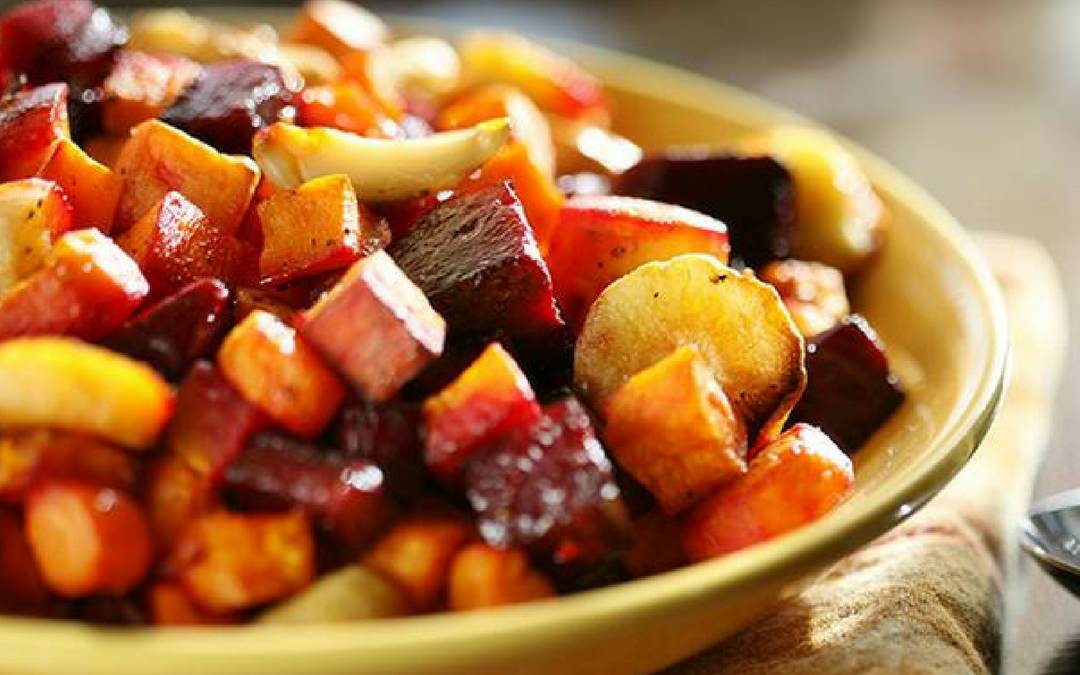Macrobiotics And The Energetics Of Food

Eat for how you want to feel
The saying, “You are what you eat,” is true. Food is our most intimate relationship, and it affects all of our other relationships, too.
Food contains not only nutrients but energy as well. If we understand this concept, then we can use that energy to ground, calm, and balance us or to expand and lift us up. If we understand how food affects us beyond the physiological, we can use it as one of our greatest tools to stay balanced in today’s fast-paced and sometimes chaotic world.
My first introduction to this idea that foods contain energy, and that it is possible to eat according to how you want to feel, was the dietary theory of macrobiotics as presented in The Self-Healing Cookbook by Kristina Turner. A macrobiotic diet involves eating grains as a staple food, supplemented with other foodstuffs like local, seasonal vegetables and sea vegetables, and avoiding the use of highly processed/refined foods and most animal products. Macrobiotics also addresses the way we eat by discouraging overeating and requiring that our food be chewed thoroughly before swallowing. This dietary theory helped me become conscious about what I was putting in my body, how I was eating ,and how foods were affecting me. It was the first time in my life I went a long time without animal meat and sugar.
While my diet has since evolved and changed, I will never forget what the theory of macrobiotics had given me – the ability to have a strong connection to my food and a sense of empowerment that I can control how I feel based upon what I eat.
How do you feel? Do you have frequent aches and pains, tension, upset stomach, headaches, skin eruptions, mood swings, and colds? The self-healing lifestyle of macrobiotics starts with the recognition that minor symptoms don’t just happen to us. We have an active hand in creating them by the choices we make in our daily lives. On the flip side of this, there is always something we can do to bring our bodies into a new state of balance by embracing three basic principles:
1. Eat in harmony with nature.
This means to eat traditional, whole, unrefined foods that are locally grown and cooked appropriately for the season.
2. Balance natural forces in cooking.
Seek a healthful blend of food characteristics: warm and cool, wet and dry, hard and soft, salty and sweet, heavy and light.
3. Use food to create desired effects.
If you can use food to improve the health of your body, this will affect your moods, and in turn, your life.
Food types for how you want to feel
Foods that are expansive or uplifting are usually:
Light, porous
Growing upward
Perishable
Tender, juicy
Cool, wet
Sweet, sour, or bitter
Spicy or oily
Raw
The above foods fuel mental, psychological, and/or spiritual activity and promote relaxation and a feeling of looseness. Some examples of these foods are leafy greens, nuts, seeds, potato, tomato, tropical fruits, butter, oil, honey, and spices.
Foods that are grounding and help us focus have these qualities:
Dense, heavy
Usually grow downward
Keep well for a long time
Grow in cool climates
Tough, fibrous
Are cooked
Salty, bland, or meaty
Examples include: root vegetables, animal protein (fish, chicken, turkey and especially eggs and red meat), salt, and cheese.
By checking in and seeing how you feel before a meal, and then deciding how you want to feel after you eat, you can pick and choose from these food groups to eat to fulfill your body’s natural urge for balance.





